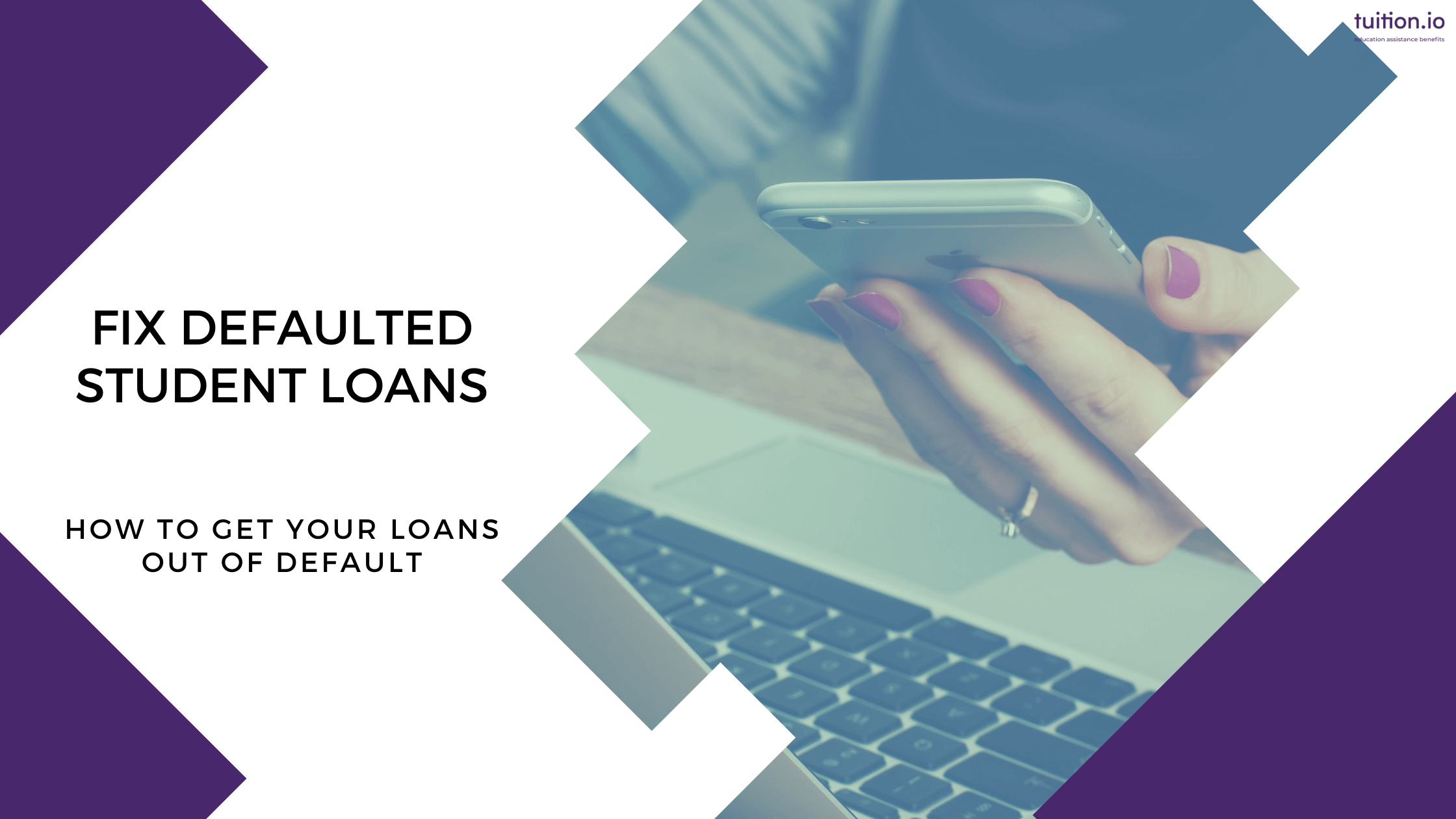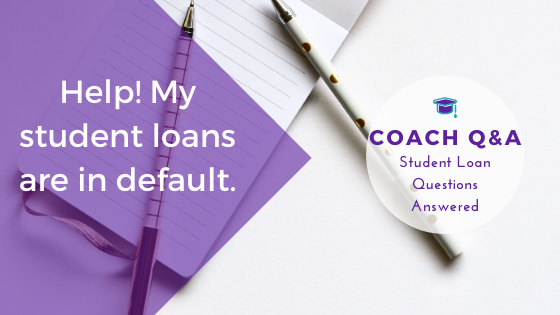CARES Act Help for Student Loan Default
Please note an executive order signed 08/08/2020 continues the student loan relief through 12/31/2020. This article has been updated to reflect the...
2 min read
coaching : September 10, 2019

I want to get my student loans back in good standing. What do I need to do to rehabilitate or consolidate my defaulted student loans?
If your student loans are in default, they’re likely also being held by a collections agency. It’s really important to sort out the holder of your student loan debt so you can avoid scams. Scams are really common in the student loan space and seem appealing with their offers of loan forgiveness or not having to pay off your full amount. Claims like that are too good to be true.
Read on for the exact steps you need to take to rehabilitate or consolidate your defaulted student loans.
One of the collections agencies contracted by the Department of Education is likely holding your student loans. The collections company has probably reached out to you via phone and email. Be sure to check that they are in fact working on behalf of the Department of Education by checking out this list.
If you’re not sure who is holding your loans you can find out by logging in to My Federal Student Aid. There you will see a list of your federal student loans as well as the agency or servicer holding them.
Rehabilitation of defaulted student loans removes the history of default from your credit. Rehabilitation doesn’t remove the late payments leading up to default. To pursue rehabilitation you’ll contact the company holding your student loans and let them know you would like to rehabilitate. Remember rehabilitation is a one time only option, as long as you’ve never rehabilitated defaulted student loans in the past you can participate.
Rehabilitation is a federal benefit guaranteed to borrowers. Your student loan holding company must allow you to rehabilitate your student loans. Be persistent and insist on it. You will need to repay your loans under an income-driven repayment plan to rehabilitate them. That means you will need to complete & submit income information.
Your monthly payment will be 15% of your discretionary income. If that payment isn’t affordable to you, you can contact your loan holder and complete the Loan Rehabilitation Income & Expense Form. This form provides the information to base your monthly payment off.
Depending on your income, your monthly payment under a loan rehabilitation agreement could be as low as $5.
Under this strategy you apply for a Direct Consolidation Loan and enter an income-driven repayment plan. This doesn’t remove the history of the default but does resolve the default as soon as the loan is consolidated. This option is the fastest way to remove your student loans from default, but the drawback is that it does leave the default on your credit history.
You can’t consolidate your student loans if your wages are currently being garnished . You also have to have an FFEL loan or multiple federal loans to consolidate.

Please note an executive order signed 08/08/2020 continues the student loan relief through 12/31/2020. This article has been updated to reflect the...

During the COVID-19 emergency student loan relief period, collections on defaulted student loans have been stopped. Payments are set to resume after...

My student loans are currently in default and I’d like to get them back into good standing. I’m really not sure what to do. Can you help me figure...